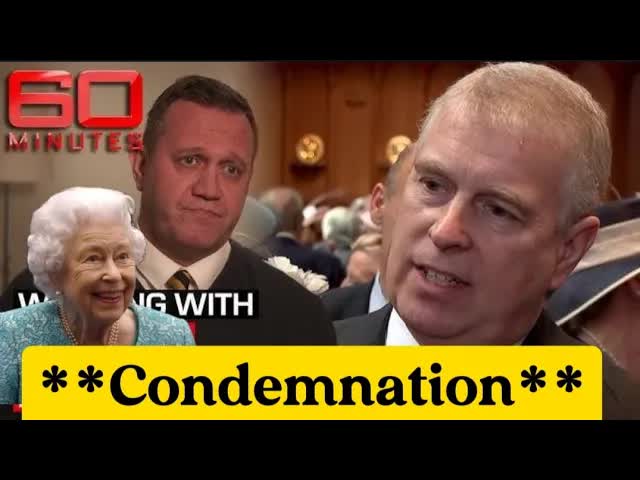Former Royal Protection Officer Paul Page has opened up about his harrowing experiences working closely with Prince Andrew, painting a stark picture of the Duke of York’s erratic behavior and troubling attitude.
According to Page, Andrew was by far the most difficult royal to deal with, often displaying a complete disregard for the staff tasked with his protection and well-being.
Page’s accounts reveal an alarming pattern of abusive behavior from Andrew, who would frequently berate and belittle his security detail.
This kind of conduct, he argues, cannot be overlooked.
When a person treats their staff with such contempt, it raises serious questions about their character and the culture within the monarchy.
Page insists that if these issues are not addressed, the cycle of abuse will only continue.
The former officer recounts numerous incidents where Andrew would lash out at his team.
From shouting obscenities to demanding access for unknown individuals, his behavior created significant security risks.
Page describes a toxic environment where no one dared to confront the Prince, fearing repercussions not just for themselves but for their careers as well.
One particularly striking incident involved a routine security check when officers discovered Andrew pacing in the Queen’s Corridor.
When approached, he responded dismissively, asserting his right to roam freely in what he considered his home.
Such interactions highlighted a troubling sense of entitlement that many believe has characterized Andrew’s time in the royal spotlight.
Page reflects on Andrew’s lifestyle, which he describes as hedonistic and carefree, often flaunting his privilege without regard for the consequences.
This behavior, according to Page, has left a lasting negative impression on those who have served him.
He emphasizes that Andrew’s actions over the years have not only affected his reputation but have also tarnished the royal family’s image as a whole.
The former officer also shares unsettling details about Andrew’s personal life, including peculiarities in his private quarters.
During security checks, Page encountered a bizarre collection of teddy bears meticulously arranged in Andrew’s bedroom, a reflection of the Prince’s controlling nature.
The requirement that staff return these toys to their exact positions underscores the coercive behavior that has become synonymous with Andrew’s interactions.
Page also discusses his conversations with other staff members, revealing a common sentiment of dissatisfaction and resentment.
His interactions with Andrew’s personal valet painted a picture of a man who had spent decades in service yet harbored deep-seated disdain for the Prince.
These insights reflect a broader culture of fear and subservience that has plagued Andrew’s relationships with those around him.
As the allegations against Prince Andrew continue to mount, the public is increasingly aware of the stark contrast between his privileged position and the expectations of conduct befitting a royal.
The fallout from his behavior has prompted calls for accountability, as many question how someone with such a troubling history could remain associated with the monarchy.
The revelations from Page serve as a reminder of the urgent need for reform within the royal family.
The culture of favoritism and lack of accountability must be addressed if the institution hopes to regain public trust.
Andrew’s actions have highlighted systemic issues that require immediate attention to prevent further damage to the monarchy’s reputation.
With ongoing legal battles and public scrutiny, Andrew’s future remains uncertain.
The once-revered royal is now viewed as one of the most controversial figures in modern British history, with his legacy forever tainted by allegations of misconduct and abuse of power.
Page’s candid reflections not only expose the troubling dynamics within the royal family but also highlight the importance of ethical standards for those in positions of influence.
The need for accountability and reform is more pressing than ever as the royal family navigates the fallout from Andrew’s actions.
As the story of Prince Andrew unfolds, it serves as a cautionary tale about the dangers of unchecked privilege and the consequences of failing to hold individuals accountable for their behavior.
The royal family must confront these challenges head-on to restore their standing and fulfill their responsibilities to the public they serve.
Related Stories

